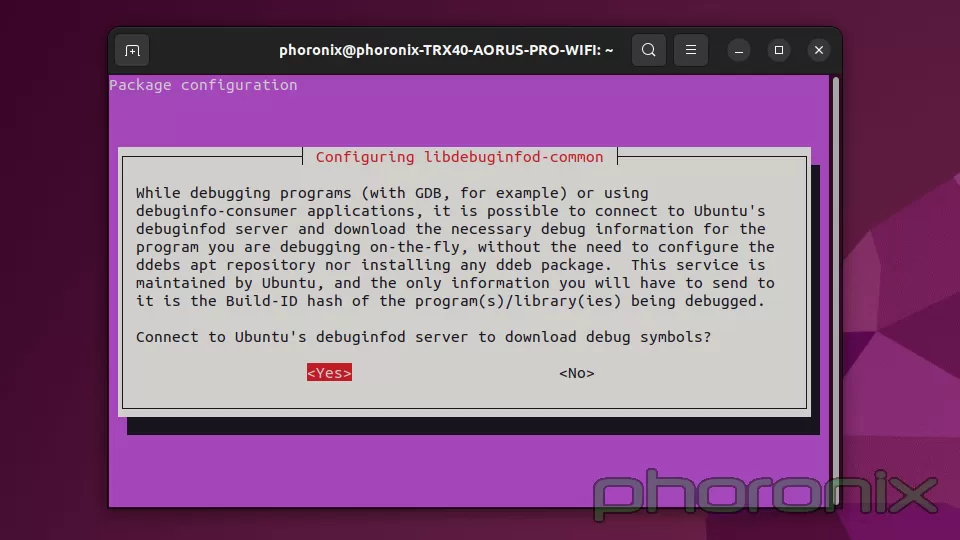Ubuntu 22.10, scheduled for release next month, will add an important change: the integration of Debuginfod.
Debuginfod supports automatic querying of remote HTTP servers for debugging resources via Binutils’ readelf and objdump tools or the GNU Debugger (GDB) itself. The debuginfod server can provide ELF/DWARF debug files to clients on demand.
Red Hat has been responsible for building the debuginfod ecosystem – because its engineers first developed debuginfod, and since Fedora 35, debuginfod is used by default, so as to be able to obtain debugging information/resources for projects from a centralized server, thereby reducing the need to manually install related debugging packages the hassle, while also reducing the use of extra disk space. Arch Linux also started their debuginfod server a few months ago.
Debuginfod was introduced into GNU Binutils two years ago and is supported by the GNU debugger and other toolchain components. Debuginfod is favored by many developers because it transparently obtains the necessary debug data and source code on demand, rather than dealing with messy debug packages.

While debuginfod initially focused only on supporting the GNU toolchain, LLVM also added support for the debuginfod server this year.
Ubuntu upstream Debian launched their debuginfod server last year. In Ubuntu 22.10, Canonical has also started to integrate Debuginfod, and developers do not need to manually install alternatives to the debuginfo package. Ubuntu’s debuginfod server is currently providing DWARF information, and there are plans to add indexing and source code in the future. In Ubuntu 22.10 and later, when installing software like GDB, the user will be prompted whether to use debuginfod – or this can be changed by reconfiguring the libdebuginfo-common package.

Click here for more discussion on Ubuntu 22.10 integrated debuginfod.
#Ubuntu #integrates #Debuginfod #News Fast Delivery